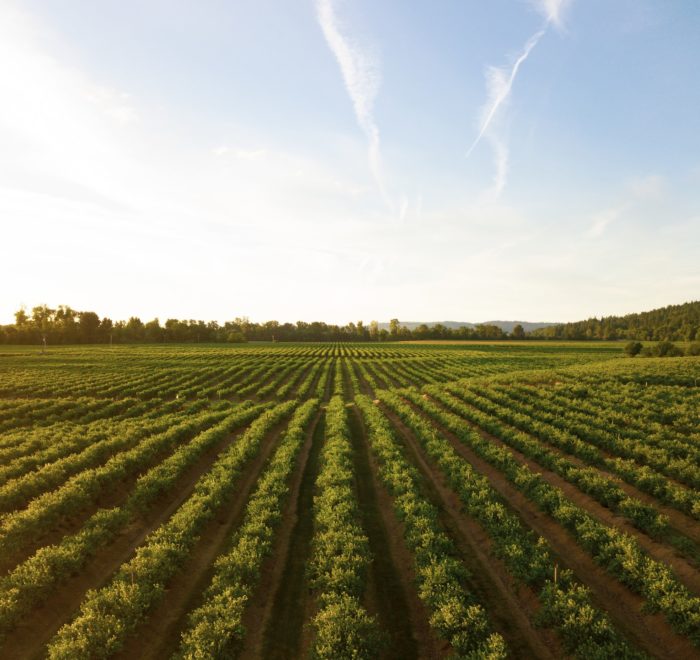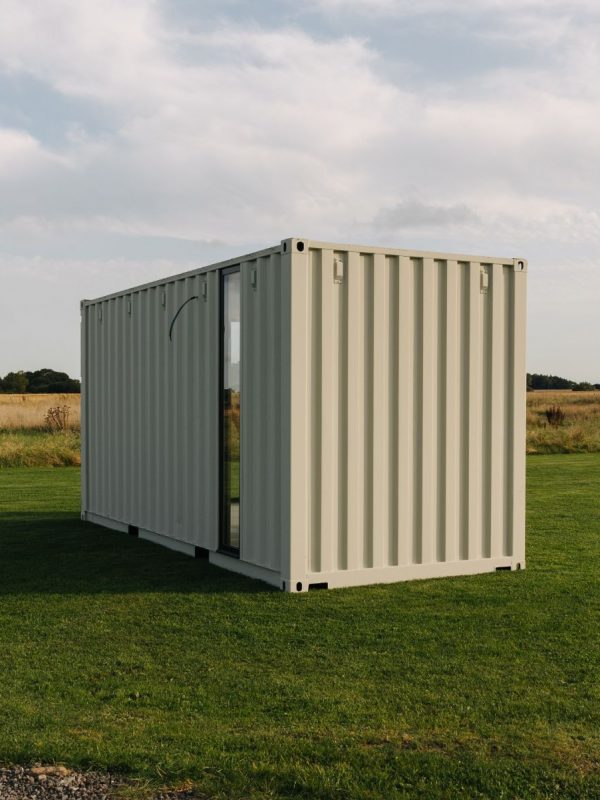Our shipping container farm buildings offer versatile and secure storage options for use in agriculture.

Shipping container farm buildings are repurposed metal cargo boxes that can transform your farmland. They can be used to store machinery and tools, grow crops, bring farming closer to the city, and much more.
Live Off Grid’s adapted farm buildings offer a versatile alternative to sheds and warehouses — at a fraction of the cost. Whatever your farming needs, our containers are an innovative option that could revolutionise both the way you farm and the food you grow.
One of the many benefits of shipping container farm buildings is that they can be customised to suit your needs. They can be interlocked, stacked, and moved around your farmland as needed.
The outside of your container is designed to be durable enough to withstand even the harshest weather conditions, while the inside is wide enough to include a path between indoor crops.
One of the most pressing issues for farmers is a lack of adequate space for growing crops and storing equipment. It’s a juggling act that can prompt tough decisions about how best to maximise available capacity.
Live Off Grid’s upcycled shipping containers are perfect for growing indoor crops and can be used as nurseries and greenhouses.They also make excellent dry storage space for machinery, tools, and grains.
Whatever challenges you’re facing, our shipping container farm buildings could present the perfect solution.
Unpredictable weather and crop-eating pests are two of the biggest issues within agriculture. With weather conditions becoming increasingly erratic, it’s often difficult to maintain a controlled environment.
That’s where Live Off Grid comes in. Our sturdy storage containers are built to withstand extreme weather. They also excel at protecting your crops from pests, and help to control temperature, humidity, and light.
If bad weather and insects are problematic, our game-changing farming containers could be the answer.
Suitable storage can be something of a head-scratcher in the world of agriculture. Farms should be able to rely upon a transportable, stress-free storage solution that is multi-purpose and won’t break the bank.
Live Off Grid’s shipping container farm buildings can be put to good use as soon as they arrive on your land. Additionally, they can be easily moved from one part of the farm to another in line with demand.
Our versatile farm buildings are the moveable marvels that won’t break the bank and suit most farming needs.
The word ‘farm’ has an evocative charm that instantly conjures images of green-hued patchworks of fields, brazen yellow wheatfields, and grazing livestock beneath clear blue skies. In short, farming has always been inseparable from the countryside. However, thanks to the repurposing of shipping containers, these conventions are now being radically upended. This is the dawn of a new era, signalling the advent of urban farming.
To tackle a lack of affordable and nutritious fruit and vegetables in inner-cities, some environmental groups have repurposed shipping containers to grow fresh, tasty produce of their own. Using hydroponic farming techniques, these urban farmers can grow organic fruit and vegetables all-year-round. In the process they’ve cut food transportation costs for local schools, food banks, and local businesses. The revolution is coming to a pavement near you.


The ongoing climate emergency is one of the most pressing concerns of the modern age. To help tackle the crisis, many industries are increasingly looking at how they can play their part to reduce emissions, minimise waste, and reduce their carbon footprint.
One of the obvious benefits of upcycled shipping containers is that they’re easy to transport, reducing fuel emissions. As shipping containers can be picked up and dropped wherever needed, you can reduce unnecessary waste from further transportation, as well as save money on the materials needed to build a more permanent alternative.
Because the containers are being reused and can better conserve wasted water and other natural resources, it’s a more sustainable option in the long-term. This makes shipping container farm buildings a welcome development for the eco-conscious.
Join thousands of readers who discover more to off grid living every week.
Another of the biggest problems for farmers is the increase in highly unpredictable weather conditions. Poor productivity in agriculture is often directly linked to these bouts of extreme weather, with excessive heat creating droughts, and prolonged rainfall resulting in erosion and soil run-off. Both have potentially catastrophic implications for farmers.
Shipping container farm buildings combat this by providing a controlled environment for growers. As an indoor unit, every aspect of the environment can be carefully maintained. This means that factors such as light, heat, water and humidity can all be controlled, taking away the unpredictability of the elements.
The prospect of reliable, all-year-round yields highlights the transformative effect that shipping containers could have on your farm.


Attitudes towards food are slowly changing. Where once people were satisfied with the convenience of the supermarket, we’re now starting to ask more questions about where our food comes from and how it was produced. Even so, while there’s an increased demand for locally-sourced, sustainable food, the dizzying array of options at our fingertips means that taste will always be a major draw. We want to eat healthily and we’d like to help our local farmer, but poor quality will invariably turn out to be a deal-breaker.
The controlled environment of the shipping container could result in exciting innovation when it comes to the taste and flavours of your favourite fruits and vegetables. This experimentation could significantly alter your evening meal habits in the years to come. And, because the containers can be placed closer to consumers, you can supply fresher, locally-grown produce that’s totally free of any pesticide or herbicides. It’s truly a brave new world for food fanatics.
Please fill in the form below, and we will contact you within 48 hours to proceed.